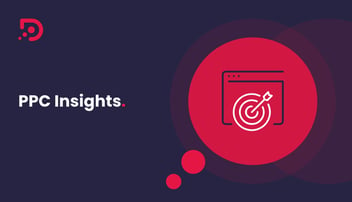In the ever-evolving digital landscape, advertising has always been a cornerstone of how businesses connect with customers. Traditionally, search engines like Google have dominated the online advertising ecosystem, with businesses bidding on keywords and targeting specific demographics. However, as artificial intelligence (AI) platforms like ChatGPT and Claude become more integrated into everyday life, we might be on the cusp of a new advertising paradigm. The future of marketing could lie in AI-powered platforms, shifting the way businesses approach their target audiences.
AI-Powered Advertising: A New Frontier
As AI platforms such as ChatGPT and Claude grow more sophisticated, they present an exciting new opportunity for businesses to reach consumers in ways that were previously unimaginable. Currently, Google and its ad network dominate the advertising space through search-based advertising. Marketers bid on specific keywords that align with their products or services, and Google’s algorithms deliver ads to users based on those terms. This has proven effective over the years, but as the digital landscape evolves, so too will the way companies interact with potential customers.
ChatGPT, Claude, and other conversational AI platforms have already begun to reshape how people search for information. Instead of simply typing in keywords and receiving a list of links, users are engaging in interactive conversations with these AI models to obtain more personalized and nuanced responses. In the future, this conversational approach could open the door for businesses to advertise directly within the conversation itself, creating a new kind of interactive ad experience.
Imagine you're interacting with ChatGPT about a product you're considering purchasing. As the AI provides answers, it could seamlessly integrate branded content or recommend specific products in response to your queries. This would not only provide more relevant advertisements but also create a less intrusive, more conversational advertising experience. For example, if you're asking ChatGPT for recommendations on the best running shoes for your needs, the platform could suggest specific brands or even direct you to a retailer where you can buy them—all within the flow of the conversation.
Advertising Formats in AI Platforms: What to Expect
While we are still in the early stages of AI-powered advertising, the potential formats for ads on platforms like ChatGPT and Claude are bound to evolve in fascinating ways. Some possibilities include:
Contextual Sponsored Responses: As AI tools become better at understanding the context of your questions, businesses could pay to have their product or service recommended as part of the AI’s response. For example, if you're asking ChatGPT for advice on improving your productivity, a business could advertise their time management app as a solution within the conversation.
Interactive Ads: Since AI platforms engage users in a more dynamic way, ads could also be interactive. A business might create a personalized mini-experience where the user can "try out" a product or service through the AI platform. For instance, if you're learning about photography, an AI might ask you to participate in a quiz, with a tailored recommendation at the end, like a special discount on a camera from a particular brand.
Native Advertising within AI Conversations: Just as social media platforms use native ads that blend into your feed, conversational AI could feature native ads woven seamlessly into the interaction. Users would never feel as though they’re being interrupted by an ad, and the ad would feel like an organic part of the experience.
Voice-Activated Ads: With the rise of voice-activated AI like Siri, Alexa, and Google Assistant, voice search and voice-based conversational AI could open the door to audio advertisements. Businesses could advertise through voice ads that sound like part of a natural conversation, appearing when users ask for recommendations.
AI-Powered Personalization: One of the greatest advantages of AI is its ability to deliver personalized content. Future ad formats on AI platforms will likely leverage detailed insights into user preferences and behaviors, allowing businesses to create hyper-targeted ads that feel highly relevant to the individual user.
The End of Keyword Research? Shifting to Question-Based Targeting
.png?width=744&height=421&name=Screenshot%20(34).png)
As AI platforms like ChatGPT become the focal point of user queries, traditional keyword research may become less of a focal point in digital marketing strategies. Instead of simply bidding on keywords that users search for, businesses may need to focus more on understanding the underlying intent and the questions users are asking.
In the current landscape, businesses optimize their content and ads around specific keywords—phrases that people type into search engines. With AI platforms, however, the focus will likely shift toward understanding the questions users ask and creating content that directly addresses those inquiries. This means businesses will need to anticipate the kinds of questions their target audiences are likely to ask and develop responses or advertisements that provide value through conversational interaction.
For instance, instead of optimizing for a keyword like “best shoes for running,” businesses may need to optimize for more nuanced queries such as “What are the best shoes for long-distance running in wet conditions?” AI platforms can better understand this question, providing a highly relevant and personalized answer to the user. In this new system, businesses will need to rethink how they create content, relying less on static keywords and more on anticipating customer needs and creating conversational, query-based strategies.
The Future: Where Google Stands and What’s Next
For now, Google remains the undisputed leader in digital advertising, with its search engine capturing a massive share of global online ad revenue. However, as AI tools like ChatGPT and Claude continue to grow in popularity and sophistication, the landscape may begin to change. AI-powered platforms have the potential to offer more personalized, conversational advertising experiences that could eventually rival traditional search engines.
That said, Google and other search engines are also likely to integrate AI technologies into their existing advertising systems. Google has already rolled out its own AI tools, such as Google Assistant, and its powerful advertising network will likely evolve to incorporate new formats that work well with conversational AI.
Ultimately, the future of advertising will likely blend traditional search-based methods with AI-driven interactions. As businesses experiment with these new formats and platforms, the key to success will lie in creating content and ads that feel authentic, personalized, and relevant to users, allowing AI to elevate the advertising experience to new heights.
Conclusion
AI platforms like ChatGPT, Claude, and others represent the future of advertising—a shift from traditional search engines to more conversational, question-based targeting. Businesses will need to adapt by thinking beyond keywords and focusing on creating content that aligns with the questions and needs of their audiences. As AI-powered advertising takes shape, it’s clear that the possibilities for marketers are both exciting and transformative.
At Digital Media Stream, we are always at the forefront of new advertising tools and strategies, and we will be testing new AI tools as well as new advertising formats as soon as they are released.
If you are running ads and would like a consultation, you can book a call at this link.




